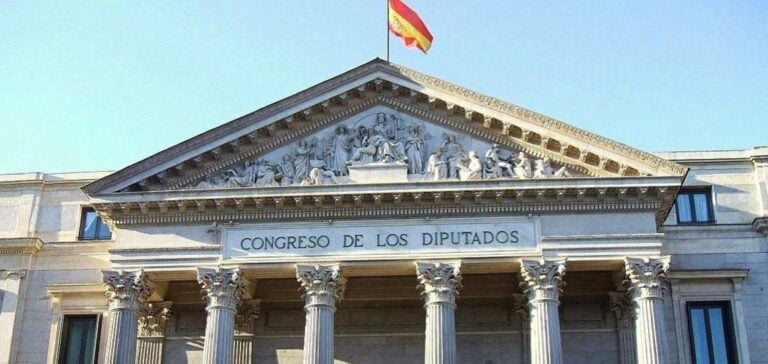The continuation of the exceptional tax on energy companies in Spain, proposed by Pedro Sánchez’s government, was rejected on Thursday by a majority of lawmakers in Parliament. This fiscal measure, introduced in early 2023, aimed to finance purchasing power support measures implemented in response to the economic impact of the war in Ukraine.
Originally designed as a temporary measure, the tax was set to expire in December 2024. However, the Socialist Party and its coalition allies from Sumar proposed extending it, triggering strong criticism from the affected companies. Several energy giants, such as Repsol, expressed their opposition in October, even threatening to suspend investments in Spain deemed essential for the country’s energy transition.
Divided Parliamentary Allies
The rejection of this measure was made possible by an unexpected alliance between the Popular Party (PP, right), the Catalan independence party Junts, the Basque Nationalist Party (PNV), and the far-right Vox party. These groups supported an amendment by the PP to eliminate the tax. The 183 votes against, out of the 350 members of Parliament, sealed the fate of the proposal.
This decision marks a turning point in the political balance of Parliament. Although the coalition between the Socialist Party and Sumar included the continuation of this tax in their government agreement, the lack of an absolute majority prevented them from passing this controversial measure.
Corporate and NGO Pushback
In addition to pressure from energy companies, organizations like Greenpeace criticized the lawmakers’ decision. The NGO denounced it as a move favoring “the interests of energy companies over the citizens,” emphasizing the environmental stakes tied to the vote.
The government, for its part, had already softened its stance in late November by withdrawing the idea of continuing the energy tax during the review of a fiscal bill. Priority was instead given to extending a similar tax on major banking groups, deemed less politically and economically contentious.
Economic and Climate Consequences
This decision is likely to have significant implications for Spain’s economy and its energy transition. The fiscal uncertainty may deter crucial investments in renewable energy, slowing the country’s efforts to achieve its climate goals.
Furthermore, the rejection of this measure reflects persistent tensions between economic priorities and climate commitments, a dilemma many European governments face. Critics now question Spain’s ability to maintain a balance between these two imperatives amidst political fragmentation.






















